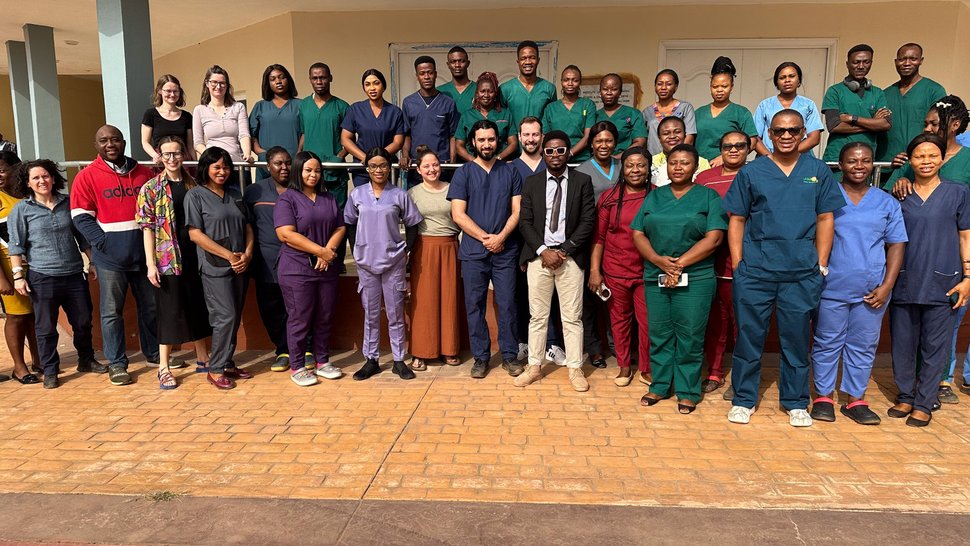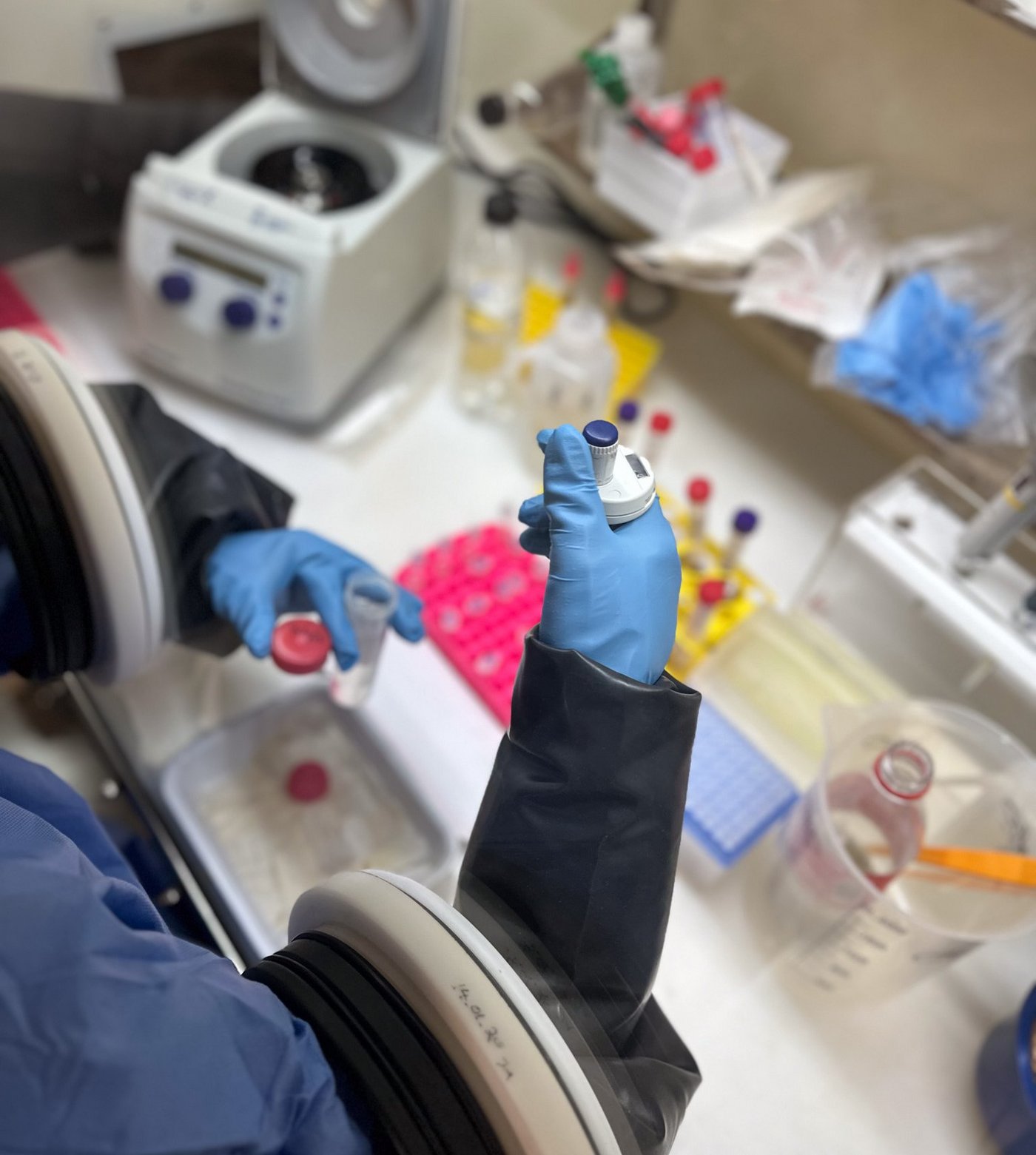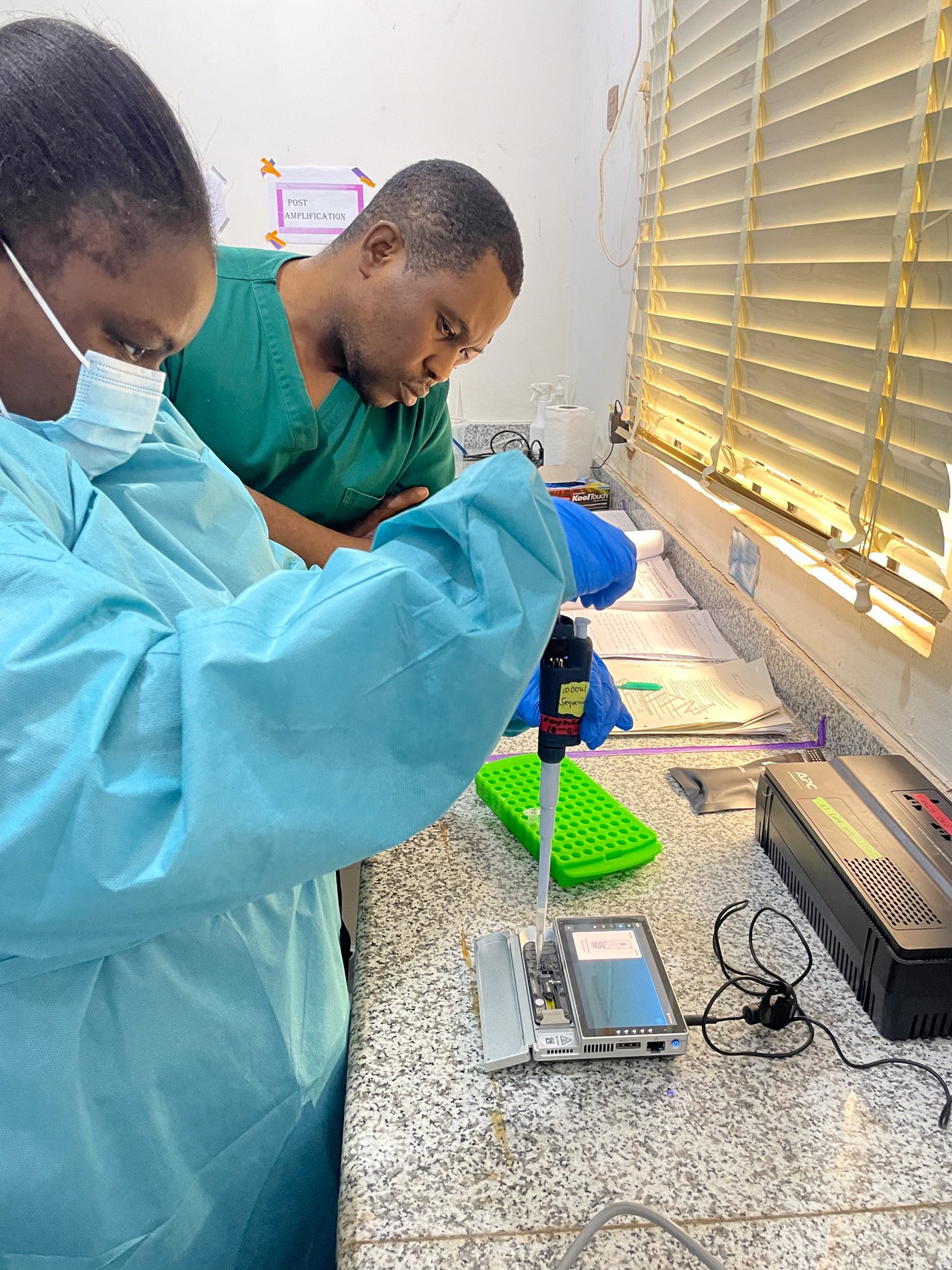BNITM joins Nigeria’s effort to fight the ongoing Lassa fever outbreak
A clinical and laboratory team from the Bernhard Nocht Institute for Tropical Medicine (BNITM) has been deployed to the epicenter of the current Lassa fever outbreak in Edo State, Nigeria. The Irrua Specialist Teaching Hospital (ISTH) and BNITM are joining hands to support Nigeria in combatting Lassa fever and hope to achieve breakthrough findings with the start of new research studies. Novel local improvements comprise both laboratory and clinical aspects. A locally run genomic surveillance laboratory unit has now been set up and local scientists can identify and track in real-time circulating Lassa viruses to support epidemiological investigations. The clinical activities encompass patient case discussions, support with ultrasound and electroencephalography diagnostics, point-of-care laboratory testing, as well as the start of two new clinical studies on sepsis and pregnant women in Lassa fever.

Lassa fever is a viral hemorrhagic fever (VHF) and no approved treatment or vaccine exists. Little is known about the pathogenesis of Lassa fever and this hinders development of new drugs, vaccines and also medical management guidelines.
The disease occurs in seasonal peaks in Nigeria with the highest case burden between January and March every year. Since January, ISTH (Edo State, Nigeria) has seen 56 acute Lassa fever patients of which 12 (21 %) died. BNITM is supporting the hospital with medical and laboratory consumables, equipment and trainings to support the outbreak response. The acting chief medical director of ISTH, Prof. Reuben Eifediyi, and the director of the Institute of Viral and Emergent Pathogens Control and Research (IVEPCR) at ISTH, Dr Joseph Okoeguale, have highlighted the great benefit of the international collaboration to the patients in Nigeria.
To strengthen the diagnostics surveillance, the local genomic surveillance capacity has now been expanded from SARS-CoV-2 variant’s monitoring to other viral pathogens, including Lassa virus. This new sequencing capacity, so-called metagenomics, offers the possibility to timely detect, monitor, characterise and rapidly manage newly emerging viral pathogens, without prior knowledge of the infectious agent. In this new project (CELESTA, supported by the Global Health Protection Programme (GHPP) of the German Ministry of Health) led by Dr Sophie Duraffour, laboratory experts have traveled to ISTH to pursue the training of laboratory staff on hands-on and bioinformatics analysis of sequencing data and open this new unit. Such milestone achievement built on a long-term cooperation and previous works leading to key findings in the field of Lassa virus genomic diversity. The successful implementation of the novel nanopore sequencing asset on-site, fully operated by local resources, opens a new frontier in field of genomic surveillance in Nigeria, allowing a better understanding of Lassa fever transmission, supporting future public health intervention and stimulating research projects.


To better understand the pathophysiology of Lassa fever, BNITM and Nigerian partners launched the Lassa fever SEPSIS study, a large observational cohort study that will run from 2024-2029 and aims to recruit more than 500 patients with acute Lassa fever. The principal investigators Prof. Sylvanus Okogbenin and Dr Cyril Erameh hope the research will help to improve the therapy for Lassa fever patients in the future. The study is supported by the BNITM Department of Virology (Prof. Stephan Günther) and Department of Clinical Research (Prof. Michael Ramharter) and implemented by the junior research group leads Dr Lisa Oestereich and Till Omansen, Ph. D. and their teams. In their previous research, the international team observed that most Lassa fever patients died of supposed septic shock. However, diagnosis of bacterial co-infection as a cause for this shock is complicated by biosafety precautions. The team has now established laboratory capacity to perform blood cultures and molecular diagnostics for sepsis pathogens at ISTH. They have already observed two patients with severe Lassa fever, complicated by Staphylococcus aureus in one case and Klebsiella pneumoniae in another case. The K. pneumoniae was found to be resistant to commonly used antibiotics in the region. These findings substantially contributed to better patient care.
The SEPSIS study seeks to understand the rate of bacterial co-infection of Lassa fever patients but also to further investigate the inflammatory and immunological aspects of severe Lassa fever. The team researches if certain immune cells such as T cells drive pathogenesis during the course of the disease and also aims to analyse which of the immune cells are infected by Lassa virus. To do so, a glove-box based immunology laboratory has successfully been established on site. Circulating blood mononuclear cells of patients are isolated and analysed. The activation status of antigen-presenting cells (macrophages, dendritic cells, B cells) as well as T cells that specifically recognise and target the Lassa virus are studied.
Unfortunately, pregnant women affected by Lassa fever are prone to lose their child during pregnancy. To identify future countermeasures, it is key to understand the pathophysiology of Lassa fever in the understudied and often neglected population of pregnant women. To this end, the team launched the Lassa-PULSE study (Placental Understanding in Lassa Fever Pregnancy - Study of Pathogenesis and Outcomes) recruiting. women with an acute Lassa fever infection during their pregnancy. The study directly supports patient’s treatment with regular laboratory investigations, ultrasound scans and other needed laboratory testing.
The consortium hopes that the joint activities including clinical management, metagenomic sequencing and the new academic studies will help to save and improve the lives of the Lassa fever patients.
More information
Irrua Specialist Teaching Hospital (ISTH)
Related articles
New Junior Research Group on Lassa fever: Till Omansen receives coveted Leibniz funding
Contact person
Till Omansen, Ph. D.
Research Group Leader
Phone : +49 40 285380-267
Fax : +49 40 285380-281
Email : till.omansen@bnitm.de
Julia Rauner
Public Relations
Phone : +49 40 285380-264
Email : presse@bnitm.de






